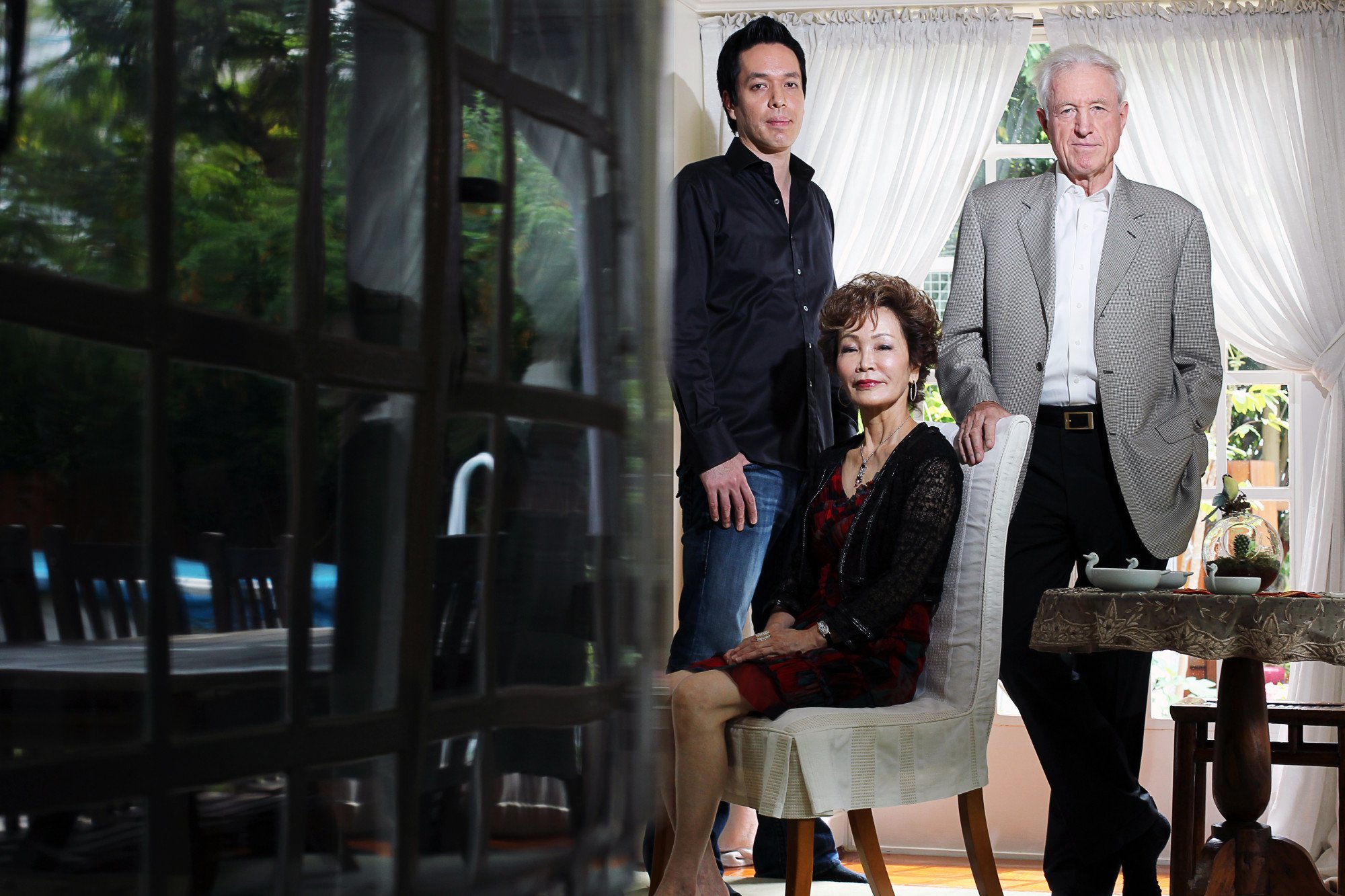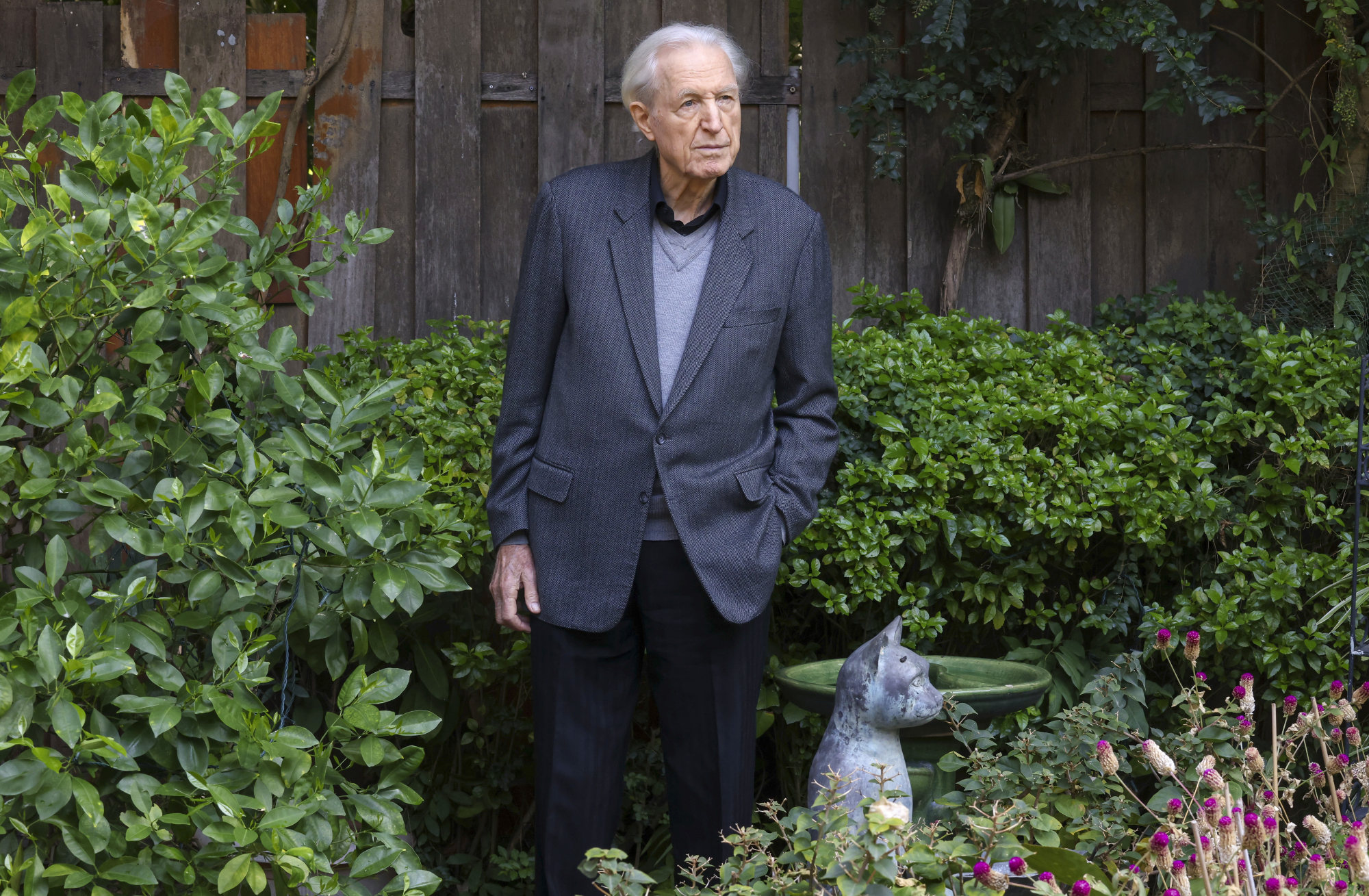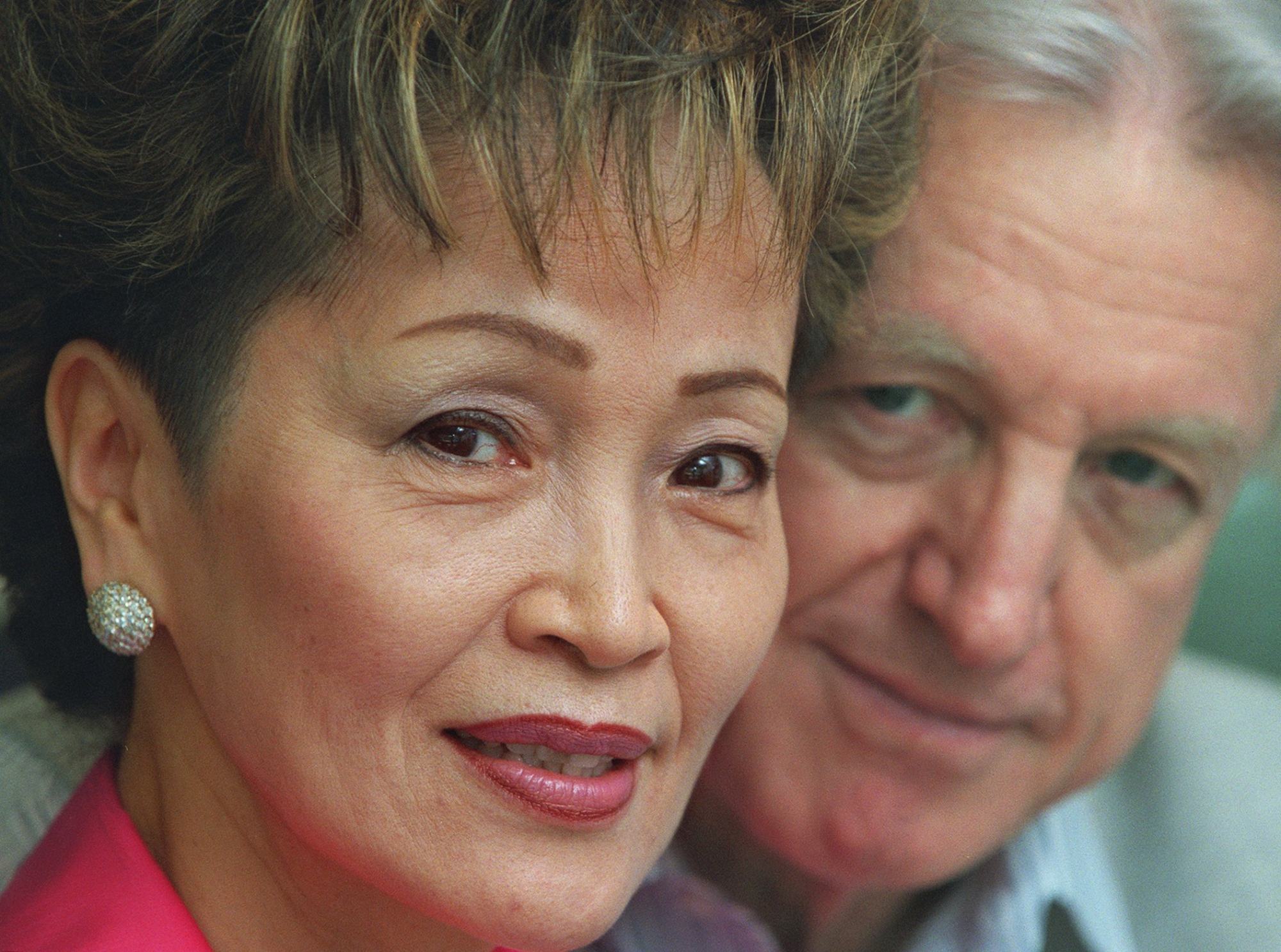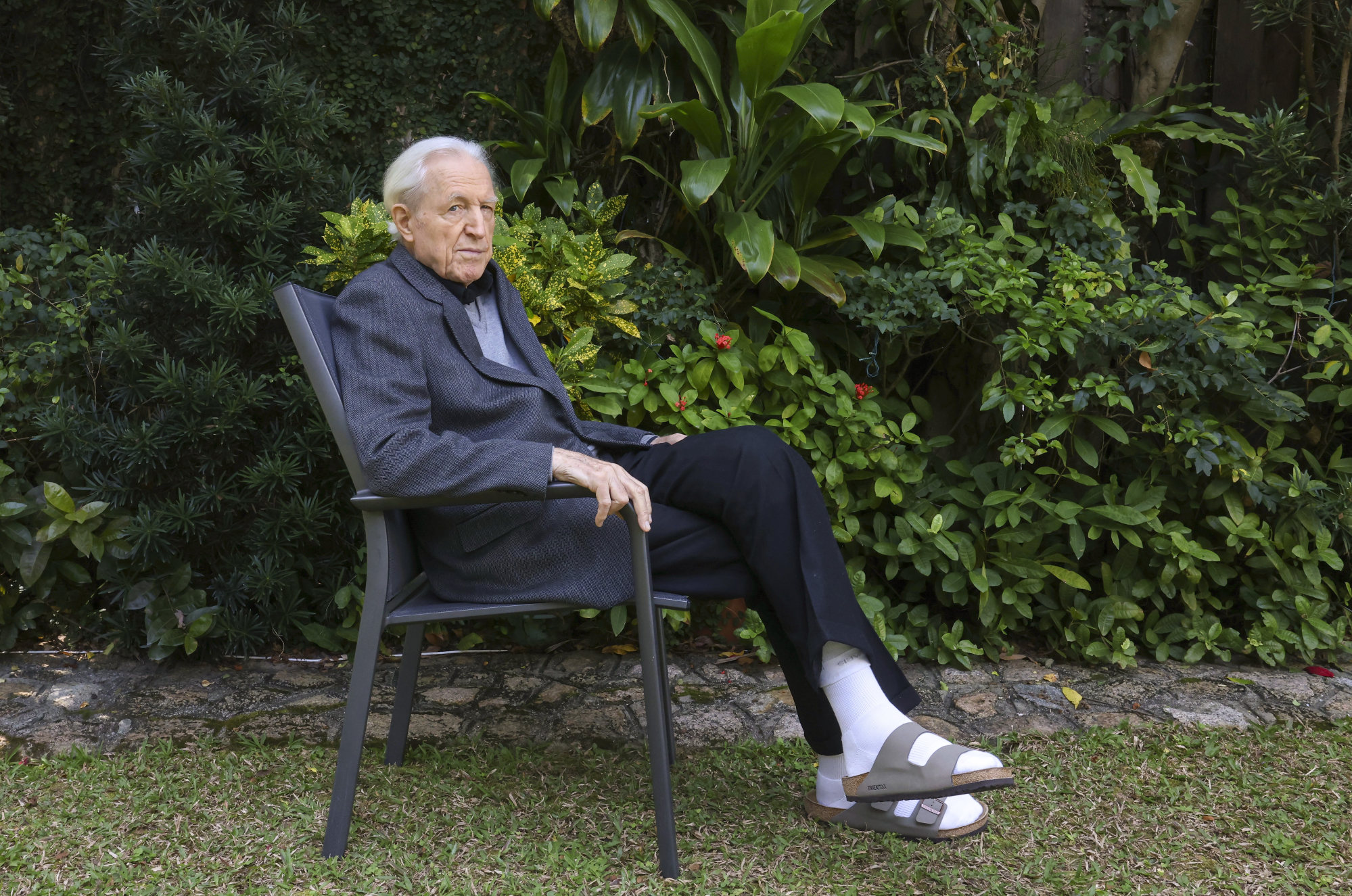
Profile | Classical music label founder on stealing from a US army base, arguments in Hong Kong, and always being ahead of the curve
- Klaus Heymann came to Hong Kong in 1967, lost millions after the Vietnam war, and later founded Naxos – best known for its classical music catalogue
- On the way he fell out with the Hong Kong Philharmonic, married a Japanese violinist, and rebuilt his fortune distributing Bose speakers in mainland China
When Klaus Heymann was growing up in wartime Germany, his teachers liked him. As an evacuee from Frankfurt into the Bavarian countryside, he was the token city-slicker in class.
“I was always the smartest, the village kids always ran after me,” he says.
What effect did that have? He has a think. “It made me competitive. I was always class speaker, I always had a big mouth.”
The founder of the Naxos record label and now, at 86, chairman of the juggernaut Naxos Music Group, is still clearly an upright force.

We meet at his house in Hong Kong’s Kowloon area where he lives with his wife, the Japanese violinist Takako Nishizaki – his partner in Naxos, as in life – and their five Maltese terriers.
World geography has favoured Heymann, as a company named after a Greek island might suggest. He attended Frankfurt university, where he played, and coached, tennis. He had a yearning to go to Brazil, so he transferred for a term to Lisbon, to improve his Portuguese. Again, his teacher loved him.
He never reached Brazil, but as the Brazilian government is due to give him an award for services to that nation’s music industry later this year, “it all sort of ties together”, he says.
‘A mad scene’: a Hong Kong party girl on the 1980s, and police corruption
When he returned to Frankfurt, the university told him he needed to stay in residence for two more years. Heymann told them to forget it and departed, degreeless.
He took a job with The Overseas Weekly, a tabloid that favoured pouting pin-ups and shrieking headlines that was pitched at United States military personnel serving in Europe. After five years, he left to do translation work for consumer products company Braun. A year later, The Overseas Weekly offered him a job in Hong Kong.
“We don’t really like you but you work hard and you’re smart,” Heymann says they told him. “OK,” he replied.

He arrived in Hong Kong on January 6, 1967. The Vietnam war was heating up and Southeast Asia was dotted with US bases but, unfortunately, The OW was banned from military news-stands.
Heymann’s solution was to use his press pass to visit US bases. Once inside, he would excuse himself to the press officer, nip into a telephone booth “to make a call” and steal the directory. “They were classified but what the hell!”
From these, he worked out the locations of units. He mailed sacks full of newspapers to Tachikawa airbase in Japan, from which the US government kindly (if inadvertently) flew them, free, direct to the front lines.
“I must say, I have to credit myself,” he says. “I’m a very creative, problem-solving guy.”

Eventually, he began his own mail-order business, shipping cameras to soldiers via Guam. He says he lost millions when the war ended. Was he actually penniless? “No. But I got pretty close.”
Luckily, by then, Amar Bose, founder of the Bose audio-equipment company, had paid a visit to Hong Kong. Without identifying himself, Bose had gone to see his own distributor, who strongly advised him not to bother with Bose products.
Bose heard about Heymann and hired him as the new distributor. China was just opening up and karaoke was the next big thing, Bose speakers were soon being installed across the land “and I became a millionaire again”, Heymann says.
So I call [conductor Lim Kek-tjiang]. I say, ‘We’re enemies but now we have a common enemy – these b******s at the Hong Kong Philharmonic’
As part of his Bose promotional activities, Heymann organised concerts in Hong Kong City Hall.
In 1973, he received a call from Lim Kek-tjiang, then conductor of the Hong Kong Philharmonic, which was semi-professional at the time. Heymann was inclined to be sniffy but agreed to help the orchestra achieve professional status. He became chairman of its fundraising committee, and its first professional concert was in January 1974.
Unfortunately, according to Heymann, the Urban Council – forerunner of today’s Leisure and Cultural Services Department – wanted to take over. Arguments with the orchestra ensued and he left with such deep resentment that he started a monthly magazine, called The Hong Kong Hi-Fi Music Review, for the express purpose of criticising both the council and the orchestra.
‘I wanted to do something for the children of Hong Kong.’ So she did
It ran for two years, a long time to hold on to a public grudge (or a joke).
“Yes, yes,” Heymann agrees. “Well, it became fun to needle those people. I wanted to get back at them.”
Did he use the magazine to publish, for example, negative reviews? “No, no, I’m not doing anything dirty. I was criticising the administration and how the Urban Council mismanaged all the halls.”
One good thing came out of the inharmonious relationship with the Hong Kong Philharmonic: he met his wife.

Heymann had initially rejected Nishizaki, the first fully fledged prodigy of the Suzuki method of teaching, when it was suggested she play as a guest for the orchestra.
He says he had certain rules – an artiste must have won a major competition within the previous three years and have played with a major orchestra, and Nishizaki didn’t qualify.
Somehow, she was booked. They met on August 13, 1974, were married on February 10, 1976 and have a son, Henryk.
When Nishizaki appears, fleetingly, during this interview, her husband says, “Here is the co-founder.” She pours tea, she laughs at his jokes. Today he’s the storyteller, but she was the catalyst.
I must say, we make more money now than before. We have everything. Deutsche Grammophon also has as many as we, but they don’t have our variety
In 1978, Nishizaki made what can only be termed a revenge-recording of The Butterfly Lovers, the famous 1959 Chinese violin concerto. Heymann had heard the Hong Kong Philharmonic intended to do its own version. By this time, conductor Lim, too, had fallen out with the philharmonic and was in Australia.
“So I call him,” Heymann recalls. “I say, ‘We’re enemies but now we have a common enemy – these b******s at the Hong Kong Philharmonic.’ He says, ‘Yes, Klaus.’”
The Nishizaki version was recorded in Nagoya, her hometown in Japan’s Aichi prefecture, with Lim conducting the Nagoya Philharmonic Orchestra.
“It killed their recording,” Heymann says. “That was the main purpose.”

Those butterfly wings, however, set in motion an unexpected sequence of events worldwide. Heymann had realised there was “actual money” in recordings and Nishizaki began to record other Chinese works.
“She was willing to learn all that stuff,” Heymann says. “It’s amazing – when I met her she’d hardly any repertoire, typical Juilliard student.”
John Duffus, who had been appointed new general manager of the Hong Kong Philharmonic in 1979, suggested they “stop fighting” and work together.
Heymann was a pragmatic businessman with a clever plan. The orchestra wanted to record Beethoven, Mozart, Schubert – “I said, ‘Guys, who’s going to buy that? Record stuff no one else has recorded.’”
‘Dreams can always be achieved’: first Latino to lead the New York Phil
When Naxos was founded, in 1987, that was its unique selling point: cheap, but high-quality recordings of works hardly anyone knew.
But as with The Overseas Weekly, retailers weren’t keen on stocking a product considered low-end and Naxos, with its basic, white CD covers, was banished to separate stands.
Gradually, its roster of previously unheralded orchestras from Eastern Europe and other regions began to encroach on the main shelves. By the end, as Heymann says, “Tower Records in London had white walls of Naxos”.
London’s Tower Records, of course, like so many music retailers, is no more. But Heymann was an early adopter of the new business model: his first streaming website launched in 1996 and the Naxos Music Library followed in 2002. (Spotify wouldn’t arrive on the scene until 2006.)
‘I’m so lucky’: blind Hong Kong singer ahead of first solo concert
“I must say, we make more money now than before,” he says. “We have everything. Deutsche Grammophon also has as many as we, but they don’t have our variety.”
In 2019, the Hong Kong Philharmonic became the first Asian orchestra to win Gramophone magazine’s Orchestra of the Year award, in recognition of its Wagner’s Ring Cycle live recordings on the Naxos label.
Hong Kong’s flagship Cathay Pacific airline now offers a Naxos Channel on its in-flight entertainment. More than 1,000 albums are added to the Naxos Music Library every month.
Polymath pianist Kit Armstrong on being more than a performer
In 2020, Heymann began making succession preparations: a deputy CEO, an expanded management board. The company structure is also being simplified which, he says, will take “another year or two”.
“I’m confident I can hang on until the restructuring has been completed,” he says.
In 2022, he was admitted to hospital, for the first time in his life, because of a “99.7 per cent blocked artery”. Asked what music he listened to during that time, he pauses.
“Well. I was never that ill [that] I listened only to music,” he says. “Two days after surgery, I was doing emails.”
